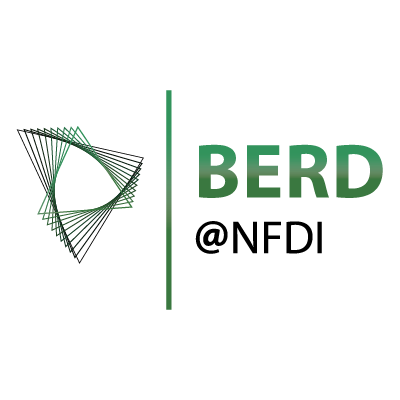๐ก Deadline to apply: April 11, 2025.
Please note the information on the application process below before applying.
Do you know that feeling, when you work on your research project after not having looked at it for a while (for example after receiving reviews) and you canโt remember how the different parts fit together?
And when you finally figure it out again, the results are somehow different. Oh no!
In this course we will set you up to never run into these kinds of issues again.
Letโs get your research project organized, under version control, stable, and published so that you can confidently say that your research is reproducible.
Application
The deadline to apply for a seat in this free course is April 11, 2025.
The course is completely free of charge; however, as part of this opportunity, we kindly ask all participants to actively contribute to our evaluation process. This helps us to continuously improve the course.
As the number of participants is limited, and to ensure the best fit between the courseโs content and its participants, we will ask you a few questions in the application form about your background and interest in the course. We will review all applications after the deadline and notify you of the outcome by April 18. You will get access to the course materials at the latest one week before the first meeting as you are expected to review the videos and booklet chapter of the first unit before the first meeting.
The course is open to all researchers; however, as part of our role within the consortium for business, economics, and related data, priority will be given to researchers working in these fields.
Topics
- The goal of producing FAIR and reproducible research outputs
- Working on research projects as a team
- Get your project organized: organized folders, naming, documentation
- Set up reproducible workflows: version control with git, stable computing environments, and automation
- Make your project reproducible and FAIR for all: publication platforms, licensing, and more
Format
This is an online course. Each week you will:
- watch the ๐บweekly videos (~45 min),
- review one of the ๐ booklet chapters,
- have a short session with your ๐ค accountability buddy* (15-20 minutes),
- implement the โ๏ธ tasks of the week, and
- discuss your progress in the ๐ฉโ๐ซ weekly online meeting with the instructor and fellow course participants (1-1.5 hours).
* You will choose your accountability buddy during the course. You and your buddy will help each other in implementing the tasks of each week.
Weekly Meetings
The course includes 5 Online Meetings, in which you will discuss the week’s contents with the instructor and fellow participants:
Meeting 1: May 06, 4:00 – 5:30 pm CEST
Meeting 2: May 13, 4:00 – 5:30 pm CEST
Meeting 3: May 20, 4:00 – 5:30 pm CEST
Meeting 4: May 27, 4:00 – 5:30 pm CEST
Meeting 5: Jun 03, 4:00 – 5:30 pm CEST
Prerequisites
- Basic programming knowledge (R, python, โฆ)
- Willingness to learn new technical skills
About the Instructor
This course is taught by the Digital Research Academy, a trainer network focused on Open Science, Data Literacy, and Research Software Engineering. The sessions are led by Elen Le Foll, Johanna Bayer and Rabea Mรผller.
Elen is an applied linguist, educator, and advocate for Open Science and Open Education practices.
Johanna is a postdoctoral Fellow at the Donders Institute for Brain, Cognition and Behaviour, developing and training machine learning models on large neuroimaging data sets. She focuses strongly on Open Code/Software, Research Software Engineering and best Coding practices.
Rabea is a data scientist with a strong focus on data literacy and in teaching workshops on data science methods and research data management for the life sciences.



